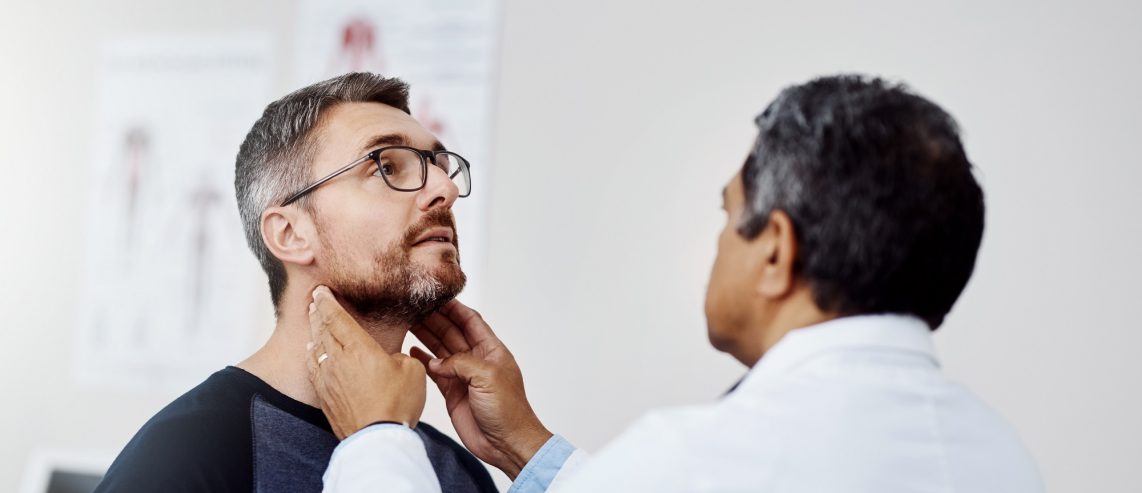Cancer most often occurs in adults over 50. But cancer in people under 50 — also known as early-onset cancer — is increasing significantly.
A 2023 study in BMJ Oncology reported that worldwide cancer cases in people under 50 rose 79% between 1990 and 2019. The number of cancer deaths increased by 27.7%.
In the United States, the American Cancer Society reported that people under 50 were the only age group to show an increase in cancer cases between 1995 and 2020.
“It really is a significant issue worldwide,” says Stanley M. Marks, MD, chairman, UPMC Hillman Cancer Center, and chief, Division of Hematology/Oncology, UPMC Shadyside.
Lifestyle factors — such as poor diet, lack of exercise, and alcohol and tobacco use — are among the biggest causes of the increase.
Learn more about risk factors for cancer in younger people and how you can lower your risk.
What Cancer Types Are Rising in Younger Adults?
The BMJ Oncology study analyzed the worldwide statistics for 29 types of cancer. It found that breast cancer accounted for the highest number of cancer cases in young people. Cases of prostate cancer and nasopharyngeal cancer (a type of head and neck cancer) increased the most between 1990 and 2019.
The cancers with the highest mortality rates in younger adults included:
- Breast cancer.
- Colorectal cancer.
- Stomach cancer.
- Tracheal, bronchus, and lung cancer.
The mortality rate for early-onset kidney cancer and ovarian cancer increased the most between 1990 and 2019.
A separate 2023 study in JAMA Network Open researched cancer rates in Americans under 50 between 2010 and 2019. The study found that breast cancer accounted for the highest number of cases, while gastrointestinal cancer showed the biggest increase.
Never Miss a Beat!
Subscribe to Our HealthBeat Newsletter!
Thank you for subscribing!
You can now select the specific newsletters you'd like to receive.
You are already subscribed.
Subscribe to more newsletters in our email preference center.
Sorry, an error occurred. Please try again later.
Get Healthy Tips Sent to Your Phone!
Why Is Cancer on the Rise in Young People?
Lifestyle and environmental factors appear to be among the biggest reasons for the increase in early-onset cancer cases.
These factors include:
- Air pollution.
- Lack of exercise.
- Poor diet.
- Smoking and alcohol use.
- Sun exposure.
A poor diet and sedentary lifestyle can cause obesity, which is a major risk factor for cancer, Dr. Marks says.
“Obesity has been shown to be related or causative in 14 types of cancers,” he says. “And there’s an obesity epidemic in our country, particularly in individuals who are young. Obesity is clearly a major factor (in younger people getting cancer).”
A study presented at the American Association for Cancer Research Annual Meeting in 2024 showed evidence of accelerated aging in people under 50. The study compared people’s chronological age (their actual age) with their biological age (their body’s condition).
The researchers found younger people had signs of accelerated aging. They also found a link between accelerated aging and early-onset gastrointestinal, lung, and uterine cancers.
Factors like poor diet, smoking, and lack of exercise can cause accelerated aging.
“We know that the No. 1 risk factor for cancer is age,” Dr. Marks says. “If younger people are aging earlier, that’s going to be a risk factor for cancer.”
Dr. Marks says changes in the gut microbiome may also be linked to multiple diseases, including heart and brain health. It may also be linked to an increase in cancer in younger people.
The gut microbiome is a collection of trillions of bacteria and other microorganisms in the intestines. Among other things, the gut microbiome can help your body’s immune system fight off infections and other illnesses, like cancer. Without the gut microbiome, surviving would be very difficult.
“We believe that there’s been a change in the microbiome in many of these young patients who are getting cancer early, whether it’s their diet, smoking, alcohol, antibiotics, or other factors,” Dr. Marks says.
“The gut microbiome is extremely important for health and particularly for your risk of cancer. So, that’s another factor that has to be considered as a cause of this rise in cancer incidents in young folks.”
Family history can also play a role. If you have a family member who developed cancer at an early age, it may also put you at risk.
What Is the Survival Rate for Cancer in Younger People?
The survival rate for cancer in people under 50 varies from cancer to cancer. But in general, cancer in younger people tends to be more aggressive. Also, it’s often more advanced when discovered.
For example, women under 40 are more likely than women over 40 to have aggressive types of breast cancer. Younger women also have a higher mortality rate from breast cancer.
One potential reason early-onset cancer is more advanced at diagnosis is that screenings aren’t recommended until later ages.
“We do not recommend mammograms before 40 years old or colonoscopies before 45. Perhaps these cancers are being found at a more advanced stage because we’re not screening for them,” Dr. Marks says. “But they also tend to be more aggressive in general for unclear reasons.”
Can You Prevent Cancer?
You can’t eliminate every risk factor for cancer because there’s nothing you can do about your genetics or family history. But Dr. Marks says a healthy lifestyle can help you prevent risk factors like obesity.
“It’s estimated by the American Cancer Society that at least half of all cancers are related to lifestyle,” Dr. Marks says. “We advocate promoting a healthy diet and healthy lifestyle starting in childhood because we believe that this predisposition to cancer starts very early in life.”
Steps to lower your lifestyle-related risk factors include:
- Avoiding heavy sun exposure. This can lower your risk for skin cancer.
- Avoiding smoking and heavy alcohol use. If you currently smoke, it’s important to quit.
- Eating a healthy diet. Focus on fresh fruits and vegetables, lean proteins, whole grains, and low-fat dairy. Avoid red meat, processed foods, and foods high in saturated fats and sodium. Dr. Marks suggests the Mediterranean diet or something similar as a potential option.
- Getting regular exercise. Doctors recommend at least 150 minutes of aerobic exercise a week.
- Maintaining a healthy weight. Body mass index (BMI) is a good indicator of your weight control. A BMI between 18 and 24.9 is considered healthy. People with a BMI between 25 and 29.9 are considered overweight, while people with a BMI of over 30 are considered obese. Obesity is a major risk factor for cancer.
You can also prevent certain cancers by getting the hepatitis B and human papillomavirus (HPV) vaccines. Talk to your doctor about getting vaccinated if you haven’t already gotten those vaccines.
When Can I Get Screened for Cancer?
Screenings like mammograms and colonoscopies can provide early detection of breast and colorectal cancer, respectively. Current recommendations are for mammograms to begin at 40 years old and colonoscopies at 45.
However, doctors may recommend you get screened at an earlier age if you have a first-degree relative with breast or colorectal cancer. In that case, you should get screened 10 years earlier than the age they were when they were diagnosed.
“In other words, if you have a first-degree relative who was diagnosed with colon cancer at 45, you should start getting screened at 35,” Dr. Marks says.
That makes it important to know your family history of cancer, especially among close relatives. Discuss your family history with your primary care provider (PCP) to see if you’re eligible for screenings.
“Early detection is so important,” Dr. Marks says. “We know that most cancers are more treatable and curable when diagnosed early.”
In addition to mammograms and colonoscopies, a low-dose computed tomography (CT) scan can screen for lung cancer. People between 50 and 80 years old with a history of heavy smoking who are currently smoking or quit within the past 15 years are recommended for screening. Talk to your doctor to find out if you’re eligible.
Cancer symptoms in young people
There are many different symptoms of cancer. According to the American Cancer Society, some of the most common cancer warning signs include:
- Bladder changes, such as bloody urine, pain while urinating, or needing to urinate more or less often.
- Bowel changes, such as constipation, diarrhea, or changes in stool (like bloody stool).
- Cough that does not go away.
- Eating problems, such as nausea, vomiting, trouble swallowing, and more.
- Extreme tiredness or fatigue.
- Fever or night sweats.
- Headaches.
- Hearing problems.
- Mouth changes, such as sores, bleeding, numbness, and more.
- New or unexplained pain.
- Skin changes, such as new or changed moles, nonhealing sores, or jaundice.
- Swelling, thickening, or lumps in the breast, testicles, or other parts of the body.
- Unexplained weight gain or loss.
- Unusual bleeding or bruising.
- Vision problems.
Dr. Marks says it’s important to stay aware of your overall health. If you notice any of the above warning signs — or any other changes in your health — talk to your provider.
“If you have any concerning symptoms, even if you’re 30 years old, (report them),” Dr. Marks says. “If you have blood in your stool or abnormal bowel movements, or you’re losing weight for unexplained reasons, you need to report those symptoms to your primary care physician.”
UPMC Hillman Cancer Center is a national leader in cancer care and research. The National Cancer Institute designates UPMC Hillman as a Comprehensive Cancer Center. For more on the care we provide, visit our website.
Sources
American Association for Cancer Research. Accelerated Aging May Increase the Risk of Early-Onset Cancers in Younger Generations. Link
American Cancer Society. Signs and Symptoms of Cancer. Link
Centers for Disease Control and Prevention. About Adult BMI. Link
Centers for Disease Control and Prevention. Screening for Colorectal Cancer. Link
Centers for Disease Control and Prevention. Vaccines (Shots). Link
Centers for Disease Control and Prevention. Screening for Lung Cancer. Link
Hee Jeong Kim, Seonok Kim, Rachel A. Freedman, and Ann H. Partridge. The Breast. The Impact of Young age at Diagnosis (age <40 years) on Prognosis Varies by Breast Cancer Subtype: A U.S. SEER Database Analysis. Link
Benjamin Koh, Darren Jun Hao Tan, Cheng Han Ng, et al. JAMA Network Open, Patterns in Cancer Incidence Among People Younger Than 50 Years in the US, 2010 to 2019. Link
Rebecca L. Siegel, MPH, Angela N. Giaquinto, MSPH, Ahmedin Jemal, DVM, PhD. CA: A Cancer Journal for Clinicians. Cancer statistics, 2024. Link
Jianhui Zhao, Liying Xu, Jing Sun, et al. BMJ Oncology. Global trends in incidence, death, burden, and risk factors of early-onset cancer from 1990 to 2019. Link
About UPMC Hillman Cancer Center
When you are facing cancer, you need the best care possible. UPMC Hillman Cancer Center provides world-class cancer care, from diagnosis to treatment, to help you in your cancer battle. We are the only comprehensive cancer center in our region, as designated by the National Cancer Institute. We have more than 70 locations throughout Pennsylvania, Ohio, and New York, with more than 200 oncologists – making it easier for you to find world-class care close to home. Our internationally renowned research team is striving to find new advances in prevention, detection, and treatment. Most of all, we are here for you. Our patient-first approach aims to provide you and your loved ones the care and support you need. To find a provider near you, visit our website.

